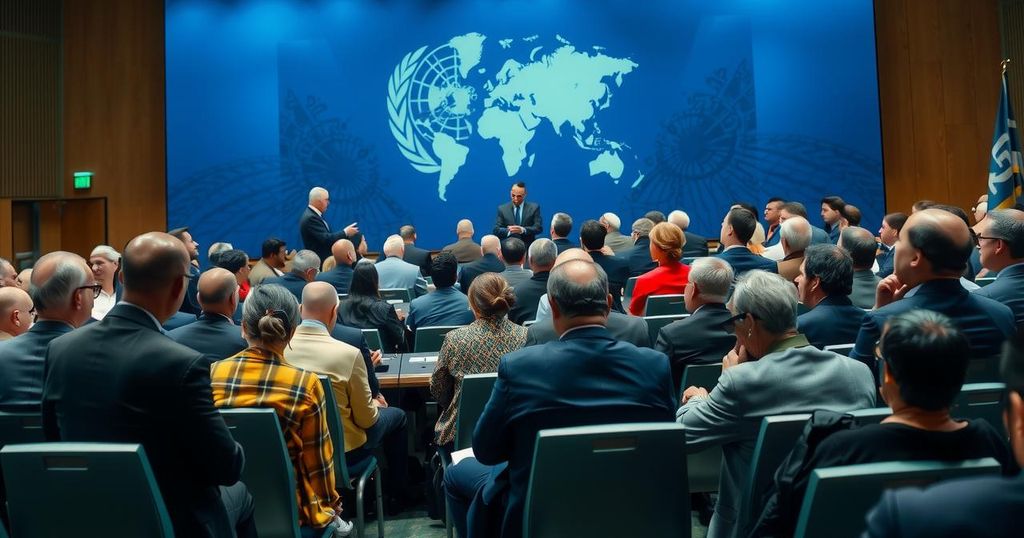COP29 has commenced in Baku, Azerbaijan, with nearly 200 countries participating. Alden Meyer highlights the pressing need to restructure climate finance goals in the wake of intensified climate challenges. The U.S. election results heighten anxieties regarding future commitments, particularly concerning the $100 billion annual finance goal, a critical component in supporting developing nations as they adapt to climate change impacts.
The 29th UN Climate Conference, COP29, is currently underway in Baku, Azerbaijan, drawing delegates from nearly 200 nations to address pressing climate change issues. Alden Meyer, a veteran observer from E3G, emphasizes the tenuous atmosphere surrounding critical decisions regarding global climate finance commitments, particularly the need to replace the existing $100 billion annual target established in 2009. With the recent election of Donald Trump in the United States, concerns about future U.S. contributions and commitment to international treaties have escalated, causing distress among other nations. Moreover, the discussions confront an urgent call for increased financing, with trillions of dollars necessary to meet the adaptation and resilience needs of developing countries amidst the worsening climate crisis. Additionally, reforming the global financial structure is crucial as there is significant reluctance from wealthier countries to adequately support poorer nations amidst catastrophic climate events, putting the efficacy of COP29 in the spotlight.
The UN Climate Conference, part of the global effort to confront climate change, convenes annually to facilitate negotiations between member states. This particular session, COP29, raises significant challenges as the global climate crisis deepens, revealing a critical need for a revised financial strategy to support vulnerable countries. The context of high-level absentees from influential nations combined with the urgent discussions on future commitments speaks to a climate policy landscape fraught with uncertainty and necessity for collaborative action. The previous commitments and their ramifications further highlight the pressures facing negotiators as they work under the looming threat of intensified climate change impacts. Historical factors, such as prior pledges from developed nations, continue to shape the dynamics at this conference, focusing attention on equity and responsibility in climate finance discussions.
In conclusion, COP29 represents a pivotal moment in the fight against climate change, hinging on negotiations to strengthen global financing frameworks essential for supporting vulnerable nations. The tensions surrounding U.S. participation and commitments, along with the urgent financial needs expressed by developing countries, underscore the critical challenges facing the delegates. The outcomes of this conference will likely set the stage for future climate policy and necessitate enhanced global collaboration to address the extensive impacts of climate change effectively.
Original Source: loe.org






